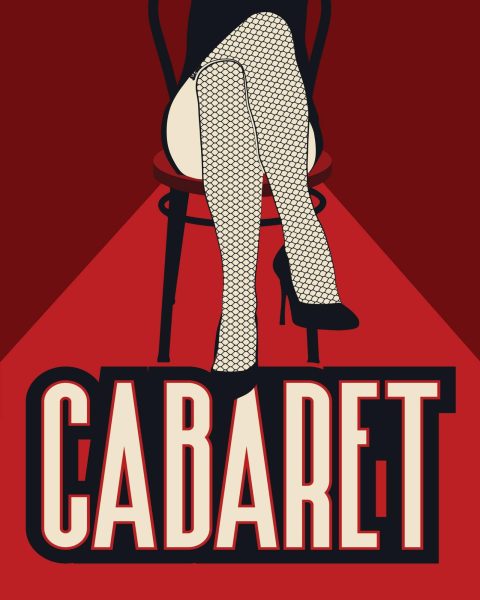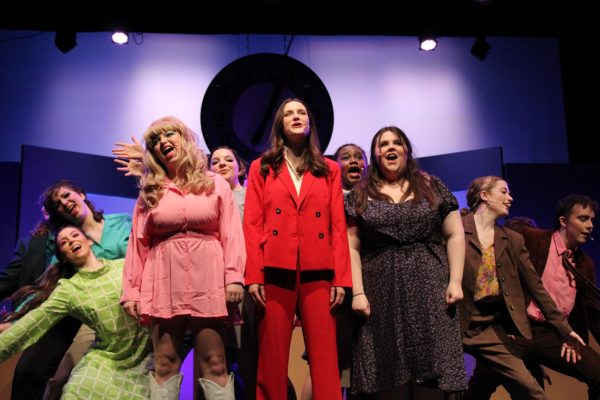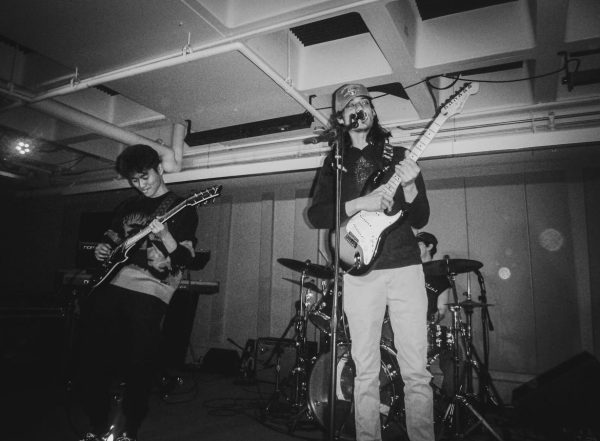Anisfield-Wolf honors culture and diversity in writing
The Anisfield-Wolf Book Awards are a driving force in our society for bringing diversity to the forefront and confronting racism from a literary standpoint. On Thursday, Sept. 7, in the KeyBank State Theater downtown, the Awards celebrated its 82nd year as part of Cleveland Book Week.
The organization awards literary pieces in categories such as fiction, non-fiction, poetry and, since 1996, a lifetime achievement award. The independent jury of internationally recognized scholars evaluates works published in English from the previous year and selects a winner from this category.
The organization was started by Cleveland native Edith Anisfield-Wolf, a poet and philanthropist. Her father made sure his family was aware of social justice issues and this education continued when she went to school at the Flora Stone Mather College for Women. She started the book awards to promote literary pieces that advocated for the values she was brought up with and believed in, and which she hoped would lead to a more peaceful nation.
The night started with a reading by Con’Yai Smith, a local 8th grader. She wrote “Cheetah” for the Cleveland Public Theater’s innovative youth programming in 2015. In her poem she proudly states that she “will not walk in fear” as she journeys through the jungle.
It was a beautiful beginning to the night as she posed the question, upon which every author speaking after her would comment: “Now are you coming with me?”
There were five award winners honored that night: Tyehimba Jess for “Olio” in poetry, Peter Ho Davies for “The Fortunes” in fiction, Karan Mahanaj for “The Association of Small Bombs” in fiction, Margot Lee Shetterly for “Hidden Figures” in nonfiction and Isabel Allende as the lifetime achievement recipient.
Davies spoke at the Tinkham Veale University Center’s ballroom on Sept. 6 in a Cleveland Book Week event hosted by the Baker Nord Center for the Humanities.
“Mahanaj wrote about a market bombing that was inspired by a market bombing he encountered at 12 years old,” declared Demitri Cullen, an 18-year old student astounded by the diversity found in stories of incredible tragedy. “To think that a tragedy we take as fiction can be lived by others is very thought provoking. I understand why they were honored tonight, they were amazing.”
I had the privilege of meeting a few of these incredible authors on this night, but the one that was the most important to me was meeting Margot Lee Shetterly.
Shetterly grew up in Hampton, Virginia, home of the NASA Langely Research Center. When she returned home in 2010, it was NASA that stole her attention; more specifically: the African American women mathematicians who had worked there.
In “Hidden Figures,” Shetterly told the story of the struggles and triumph of four NASA employees: Dorothy Vaughan, Katherine Johnson, Mary Jackson and Christine Darden. In 2016, “Hidden Figures” became a record-breaking and critically acclaimed movie with an all-star cast of names such as Octavia Spencer and Janelle Monáe. It received three Oscar nominations.
Shetterly has been no stranger to awards, having also won the NAACP Image Award for Outstanding Literary Work in nonfiction. However, it was the honor given to the people winning alongside her that she felt meant the most.
“It is an honor to be here and to have my book included in this campaign of writers,” she said. “I am absolutely floored, this award means so much and to even be considered is breathtaking.”
The Anisfield-Wolf Book Awards leave a long legacy and a continuing voice to authors who push the boundaries of social justice issues. These works continue to break barriers, and as long as the writers of these pieces are honored, this literature shall continue to inspire future generations of authors.















